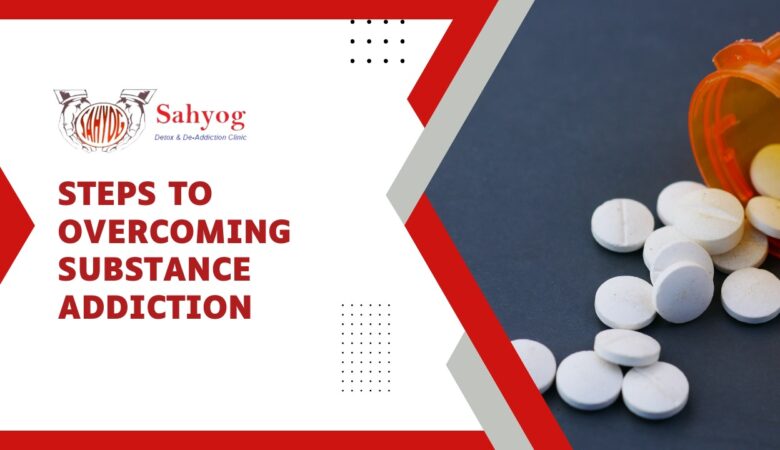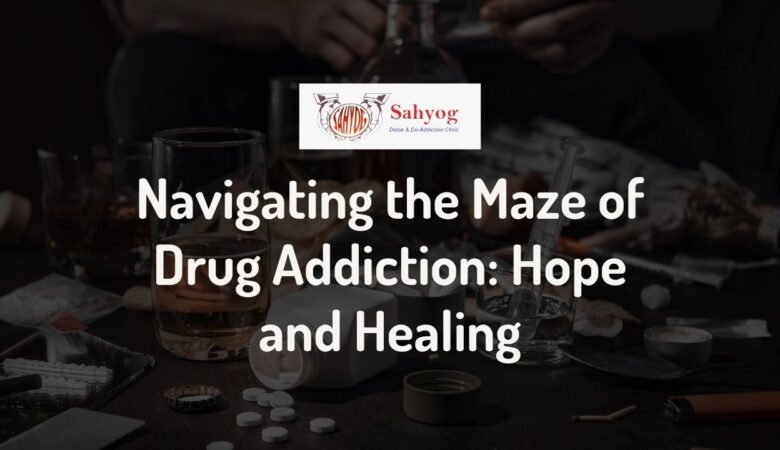Steps to Overcoming Substance Addiction
Introduction to Substance Addiction Struggling with substance addiction can feel like being stuck in a maze with no way out. The grip of addiction is powerful, but breaking free is possible. If you or someone you care about is battling this challenge, know that there are steps you can take to overcome it. In this blog post, we will explore practical strategies and tools to help navigate the journey towards recovery and reclaiming a life free from the chains of addiction. Let’s embark on this empowering journey together! Understanding the Causes and Triggers Substance addiction doesn’t happen overnight. It’s often a complex interplay of various factors that contribute to someone developing dependence on drugs or alcohol. Understanding the causes and triggers behind addiction is crucial in order to address the root issues. Many individuals turn to substances as a way to cope with underlying emotional pain, trauma, or mental health disorders. These unresolved issues can create a breeding ground for addictive behaviors. In some cases, genetic predispositions may also play a role in an individual’s susceptibility to addiction. Environmental factors such as peer pressure, family dynamics, and societal influences can further exacerbate the development of substance abuse problems. Triggers are specific situations, emotions, or people that prompt cravings for substances and increase the likelihood of relapse. Identifying these triggers is essential in creating effective coping strategies and preventing setbacks on the path to recovery. By delving into the personal reasons behind one’s addiction and recognizing potential triggers, individuals can gain valuable insight into their behavior patterns and take proactive steps towards lasting sobriety. Importance of a Support System Navigating the journey of overcoming substance addiction can be challenging, but having a strong support system in place can make all the difference. Friends, family members, or even support groups can provide encouragement and understanding during tough times. Sharing your struggles with others who care about your well-being creates a sense of accountability that can help you stay on track towards recovery. Their presence offers emotional support and reassurance that you are not alone in this battle. A support system can also offer practical assistance by helping you find resources, attending therapy sessions with you, or simply being there to listen when you need to talk. Their non-judgmental approach allows for open communication and fosters a safe space for expressing your thoughts and feelings. Remember, asking for help is not a sign of weakness but rather a courageous step towards healing. Surround yourself with positive influences who genuinely want to see you succeed in your journey towards sobriety. Changing Habits and Lifestyle Changing habits and lifestyle is a crucial step in overcoming substance addiction. It involves identifying triggers that lead to unhealthy behaviors and replacing them with positive alternatives. This could mean finding new hobbies, exercising regularly, or practicing mindfulness techniques. By making conscious choices to avoid environments or situations that may tempt relapse, individuals can create a supportive environment for their recovery journey. Surrounding oneself with people who encourage sobriety and well-being can make a significant difference in maintaining long-term success. Creating a routine that prioritizes self-care, healthy eating, and regular sleep patterns can help restore balance to both the body and mind. Making small but consistent changes over time can lead to big improvements in overall well-being. Remember, breaking old habits takes time and effort, but with dedication and perseverance, it is possible to create a lifestyle that supports lasting sobriety. Coping Strategies for Cravings and Relapses When dealing with cravings and potential relapses, it’s essential to have a toolbox of coping strategies at your disposal. One effective method is distraction – redirecting your focus by engaging in activities that you enjoy or finding ways to occupy your mind. Exercise can also be incredibly beneficial, as physical activity releases endorphins, which can help elevate your mood and reduce cravings. Mindfulness and meditation are powerful tools for staying present and managing urges when they arise. By practicing mindfulness, you can learn to observe your thoughts without judgment and cultivate a greater sense of self-awareness. Additionally, seeking out support from others who understand what you’re going through can provide comfort and encouragement during challenging times. It’s important to remember that setbacks are a normal part of the recovery process. Instead of viewing them as failures, see them as opportunities for growth and learning. Stay committed to your journey towards sobriety, knowing that each day presents a new chance to make positive choices for yourself. Maintaining Sobriety and Long-Term Recovery Maintaining sobriety and long-term recovery is a journey that requires commitment and dedication. It’s about making daily choices that align with your goal of living a substance-free life. Surrounding yourself with positivity and support can help you stay on track. Developing healthy habits, such as regular exercise, mindfulness practices, and engaging in hobbies or activities you enjoy, can provide fulfillment without the need for substances. It’s essential to be mindful of triggers and situations that may tempt you to relapse. Building a strong support system of friends, family, or peers who understand your journey can offer encouragement during challenging times. Remember that setbacks are a natural part of recovery; it’s how you respond to them that matters most. Celebrating milestones along the way – whether it’s days, weeks, or months of sobriety – can boost your motivation and remind you of how far you’ve come. Stay focused on your goals and believe in your ability to overcome obstacles on the path to lasting recovery. Types of Addictions and their Symptoms Addiction can manifest in various forms, affecting individuals differently. Substance addiction includes drugs, alcohol, and even prescription medications. Symptoms of substance addiction may range from physical dependence to uncontrollable cravings and withdrawal symptoms when trying to quit. Behavioral addictions like gambling or gaming can also be prevalent. Those struggling with behavioral addictions may exhibit compulsive behaviors, loss of interest in other activities, and an inability to control their impulses. Food addiction is another common type where individuals develop a dependency on certain


